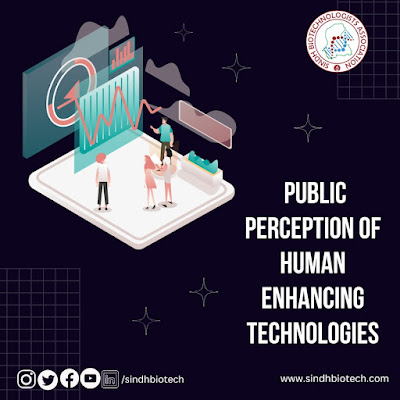Mental Health affected by Covid-19
1. INTRODUCTION
Coronavirus disease 2019 (COVID-19) is a viral infection caused by a novel human coronavirus (HCoV) named as SARS-CoV-2, which mainly targets the respiratory system. The virus belongs to the Coronaviridae family of Nidovirales order (Shereen, Khan, Kazmi, Bashir, & Siddique, 2020). Many HCoVs were recognized in past 20 years to cause respiratory disorders in different countries but the novel coronavirus caused a global pandemic. In February 2020, COVID-19 was spread worldwide at an alarming rate, even the transmission of disease was recognized by World Health Organization (WHO). The outbreak of this disease was announced as a Public Health Emergency of International Concerns (Chang, Yan, & Wang, 2020).
A pandemic is always a natural disaster that affects the life worldwide. During the outbreak of a pandemic, all the scientists, health professionals, Government and International organization put efforts to find and focus the biological cause of the disease to combat the disease completely (Ornell, Schuch, Sordi, & Kessler, 2020). In such conditions, other issues are usually underestimated and ignored. These issues may include stress, depression, fear of pandemic, emotional trauma, etc. Mental health should by observed and treated carefully as it can cause serious psychiatric disorders.
2. EFFECTS OF COVID-19 PANDEMIC DIFFERENT AGE GROUPS
Currently, we are facing a pandemic of COVID-19 worldwide. Due to this ongoing pandemic, all the public activities and gatherings are restricted to reduce the transmission of disease. In response, mental health of people is highly affected, While the intense effect is observed in children (>12 years) and elders (<40 years).
2.1. CHILDREN
School going children are mostly affected by this pandemic as all the institutes are closed and students are facing the quarantine. Restrictions like staying at home is consistently affecting their mental health as companionship is more important for child’s normal psychological health. They are quarantined and facing a sudden change in their environment as they cannot take part in outdoor activities. Children having infected family members in their home or surrounding are at higher risk to adapt the mental health disorder, because they closely observe the fear or disease or death. These all situations can be a disaster for a child’s mental and physical health (Liu, Bao, Huang, Shi, & Lu, 2020).
2.2. YOUNG
Young people are also affected by this quarantined life as they cannot continue their jobs, business, studies, etc. Financial issues are also faced by the young population as they have to feed their families, but due to the closure of business they are unable to do their work. This has an adverse effect on mental health which is highly observed worldwide from past three to four months. In response, different heaths issues occurred e.g. aggressiveness, anger, emotional trauma, stress, depression, etc. Another negative impact of social media usage is observed in young generation worldwide (Gao et al., 2020).
2.3. ELDERS
Elders are at high risk of getting this infection and this fear has highly affect their mental health (Torales, O’Higgins, Castaldelli-Maia, & Ventriglio, 2020). During quarantine, they cannot go outside and unable to meet their friends, family and colleagues which is also affecting their mental health.
3. GENERAL RECOMMENDATION FOR PUBLIC
World Health Organization issued some general recommendations for public to stay positive
during this pandemic (Organization, 2020).
i. This pandemic is observed worldwide, so do not think that any religion or population is at the higher risk.
ii. Don’t ignore or humiliate the infected patients.
iii. Minimize watching news about COVID-19, because it is mainly affecting the mental health.
iv. Protect yourself from getting the disease by adopting the preventive measures.
v. Try to find motivational and hopeful stories to watch during the free time. It will be beneficial for mental health.
vi. If you feel any type of stress or depression, then talk to someone about it or take some consultation from any doctor or psychiatrist.
vii. Take care of yourself and do some good indoor activities that will benefit your physical and mental health.
viii. Do not trust any rumors about COVID-19, always follow the official information.
ix. Help children to have some good time spending in indoor activities e.g. indoor sports, book reading, motivational movies, etc.
x. Give proper time to children and elders.
xi. Motivate children and elders to express their feelings, anxiety and fear.
xii. Do not take any medication without the prescription of any physician.
4. REFERENCES
- Chang, L., Yan, Y., & Wang, L. (2020). Coronavirus disease 2019: coronaviruses and blood safety. Transfusion medicine reviews.
- Gao, J., Zheng, P., Jia, Y., Chen, H., Mao, Y., Chen, S., . . . Dai, J. (2020). Mental health problems and social media exposure during COVID-19 outbreak. Plos one, 15(4), e0231924.
- Liu, J. J., Bao, Y., Huang, X., Shi, J., & Lu, L. (2020). Mental health considerations for children quarantined because of COVID-19. The Lancet Child & Adolescent Health, 4(5), 347- 349. Organization, W. H. (2020). Mental health and psychosocial considerations during the
COVID-19 outbreak, 18 March 2020. Retrieved from Ornell, F., Schuch, J. B., Sordi, A. O., & Kessler, F. H. P. (2020). “Pandemic fear” and COVID-19: mental health burden and strategies. Brazilian Journal of Psychiatry, 42(3), 232-235. - Shereen, M. A., Khan, S., Kazmi, A., Bashir, N., & Siddique, R. (2020). COVID-19 infection: Origin, transmission, and characteristics of human coronaviruses. Journal of Advanced Research.
- Torales, J., O’Higgins, M., Castaldelli-Maia, J. M., & Ventriglio, A. (2020). The outbreak of COVID-19 coronavirus and its impact on global mental health. International Journal of Social Psychiatry, 0020764020915212.
By: Rimsha Zafar




Comments
Post a Comment